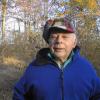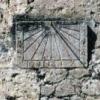I think the idea behind the TA Sciences (Patton) protocol is that if there are any incipient cancers that do not have telomerase "switched on", then you want a significant amount of time without telomerase activation to give them a chance to "burn themselves out"; i.e., to divide until they have depleted their telomeres. If you use too short a cycle, you might risk activating any incipient tumors that have normal quiescent telomerase. If I start using this stuff, I will probably go with the long interval. What's the hurry?I am wondering why TA Sciences have the 3 month on 3 month off rather than say a simpler 1 week on 1 week off or even a 1 day on 1 day off. Could it be that it takes time to build up the teleromerase or for the additional telemerase to work? Quite a few medications take a month or more to really work. Taking resveratrol within 24 hours or more might cause this not to work or work very minimally because as soon as we start to get some effect, we dampen it with Resv. Could 3 months of only astragaloside and maybe a multi and 3 months full supps and double resv be a better way to go? Do we know what supps are taken by participants of the Patton protocol while taking astragaloside?
Is there some evidence that resveratrol will deactivate telomerase? I've not heard of that.I am concerend that we will see no result or a very minor result when taken within 24 hours of resv. Anyone else share this concern?
Resveratrol has been shown to inhibit or "down-regulate" telomerase activity in colon cancer. Regarding the Patton protocol, I have to disagree with you on that one. Immortal cells, usually never burn themselves out... otherwise they would not be immortal, the would not be cancerous.
The patton protocol doesn't use an inhibitor or other drug to stop telomerase. Geron never licensed that one out to TA Sciences... I also believe that drug from Geron, is not ready for primetime yet, as it is still in trials:
http://geron.com/pro...cancerdrug.aspx
I believe for folks considering a supplement, Astragaloside IV (astral fruit) is a good option. We know that Telomerase does not cause cancer, not an oncogene, and it appears that the issue may reside with p53 or p16 failing. We just need to know more about these 2 IMHO to see if we can add something to folks diet that might help cover the issues with the p16 gene...
100YearstoGo... thanks for those links, it sets our sights on something else that might be helpful to add as a supplement... I know this topic may have expanded a bit, but I do appreciate the new information. If you do find something that may be helpful to the p16, please post it for people to consider.
For now I think taking Astral Fruit and resveratrol are good choices. Let's see if I maybe able to find something for p16, then we maybe covering most of the issues and find some possible protection against developing immortal cells.
A































 This topic is locked
This topic is locked















